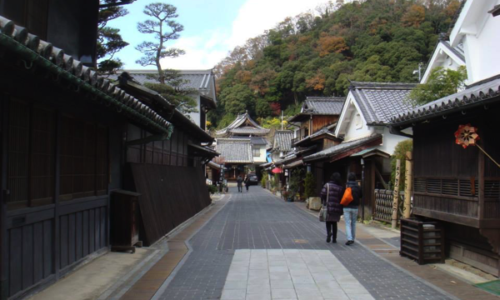This post is also available in:


There are many movies that show university life in America, for example, “Pitch Perfect” or “Spring Breakers”. I have many friends who are influenced by this kind of movie, and they dream to study in America to experience it. However, as people from the U.S. already know, these stories usually do not happen in normal life. That said, it is difficult to imagine school life in another country if you have never studied there. Fortunately, I studied as an exchange student for 2 semesters in the U.S. I will introduce some big differences that I experienced with regard to university life in America and in Japan.
1. Housing
I heard that freshmen in many U.S. schools are required to stay in a dorm for their first year, except for in some cases when their house is close enough to commute. This is why you can see many people on the campus, even late at night. On the other hand, most Japanese students do not often stay at a school dorm since that’s not mandatory, and usually school dorms are not located on the campus. My school also has four dorms, but they are mainly used by not domestic students but by international students. They often rent a room by themselves instead though. If you walk around a campus at night in Japan, you see very few students.
2. Academic curriculum
Secondly, on the topic of academic curriculum, universities in America provide a variety of fields that you cannot study in Japan. Let’s compare two famous universities in Japan and America: Kyoto University and Harvard University. Both of them come in a high rank in World University Ranking every year. However while Kyoto University has ten majors, Harvard University has twenty majors. Harvard has some unique degrees that Kyoto University does not provide, such as environmental studies, women’s studies, music, and so on. This opportunity for variety makes international kids interested in studying in the U.S.
One of the biggest differences between universities in Japan and America is that in the U.S., the path to a degree makes it possible for students to look for their favorite academic field after taking general courses, so that they are able to study what they enjoy and are good at. If you are from outside Japan, you might hear people say, “I haven’t decided my major yet.” On the other hand, when you apply to university in Japan, you have to decide your major beforehand. Moreover, it is very rare to change your major after you enter a university because most of your credits cannot be transferred to another major. This means you would have to start your degree track from zero credit. My major has about 500 students in Japan, and I know just one student who changed her major. Changing majors like this is rare.
However, there is also merit to Japanese curriculum. For instance if you have a clear future career, it may be better to study in Japan. Japanese curriculum is designed to give students the shortest step to becoming what they want to be. But as I mentioned above, if you haven’t decided what you want to study, its probably a good idea to study in other countries.
3. Graduating rates
The next point regarding academics is each country’s graduating rates in 4 years. You might hear that it is difficult to get into university in Japan, but it is relatively easy to graduate. People say the opposite thing happens at universities in America. You can see this point from the data by the National Center for Education Statistics. This data shows that just about 60% of university students in America graduate from their university within 6 years. About 85% of university students in Japan graduate from the school in 4 years though. Reading through this article, it must sound like American university students have a lot of flexibility, but this also means they have to take full responsibility for their decisions.
4. Professors
The last point we will look at is that Japanese professors do not give as much homework as their American counterparts. It may seem odd, but some professors give grades based merely on one midterm and one final exam’s results. They don’t seem to care about your understanding of its course as long as you get a high enough score to pass the exams. This grading style makes students less-motivated to participate in class; all they have to do is to study just right before their upcoming exams. This is why that even after they finish their degrees, many students probably can’t remember what they learned for four years. If you are skeptical, try asking your Japanese friends what they have studied throughout their years in college. I’m not saying it is true of all students, but it’s true that many wouldn’t be able to tell you.
You cannot move up to the next level without receiving a certain minimum grade. I have seen many freshmen drop out of school because of their low grades. University in the U.S. opens doors for students with great drive. But if you want to go study in America because you imagine their school life is like a movie, it’s not a great idea. That said, it is getting easier and easier to get a scholarship that will help you financially to study abroad. You ought to try for one if you have high interest in studying in the U.S. They always welcome highly motivated students.
Kazuaki Aya











